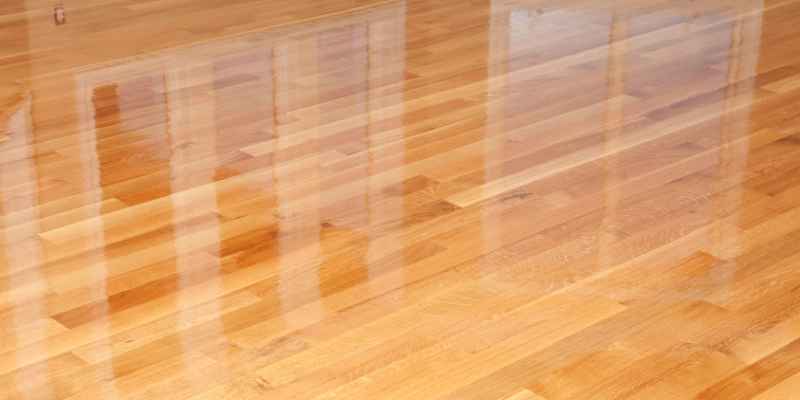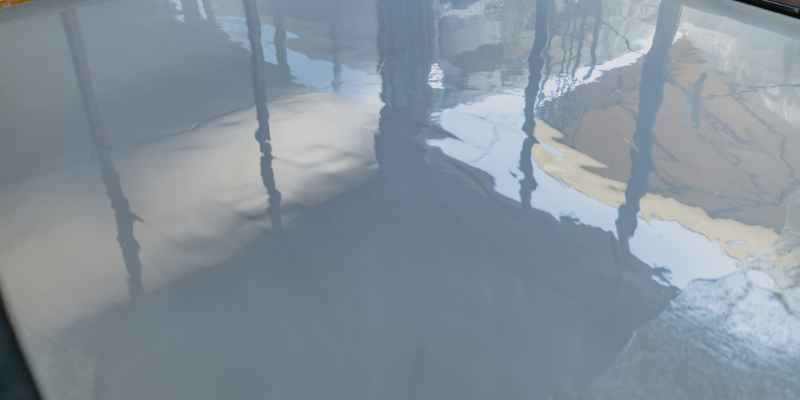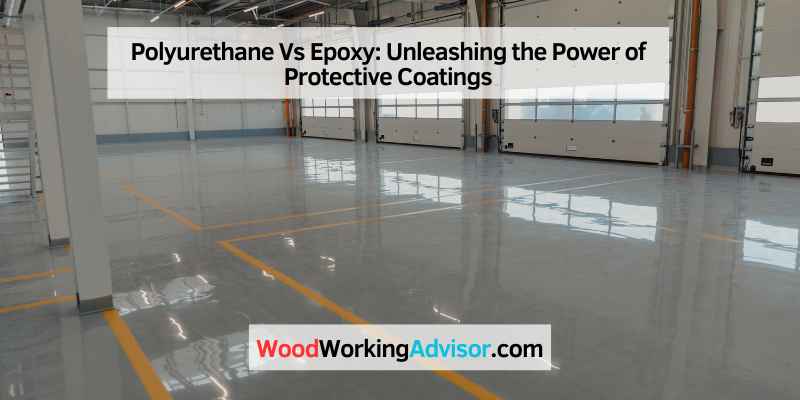Polyurethane and epoxy are two commonly used coatings, each with its own unique properties and benefits. Polyurethane provides excellent durability and flexibility, making it ideal for surfaces that experience heavy foot traffic or frequent movement.
On the other hand, epoxy offers exceptional strength, chemical resistance, and adhesion, making it a popular choice for industrial applications and areas prone to spills or chemicals. Both coatings have their advantages and should be chosen based on the specific needs of the project at hand.
It’s important to consider factors such as desired finish, level of durability, exposure to sunlight or chemicals, and maintenance requirements when deciding between polyurethane and epoxy. Ultimately, the right choice will depend on the specific project requirements and desired outcome.
Polyurethane Coatings
Polyurethane coatings are a popular choice in various industries due to their exceptional performance and versatility. These coatings are formulated by combining a polyol resin and an isocyanate hardener, resulting in a durable and protective finish that offers numerous benefits. From enhancing the aesthetics of surfaces to providing excellent resistance against wear and tear, polyurethane coatings have become indispensable in many applications. Let’s take a closer look at the properties, advantages, and applications of polyurethane coatings.
Properties Of Polyurethane Coatings
Polyurethane coatings possess a unique set of properties that make them highly desirable for a wide range of applications:
- Excellent durability: Polyurethane coatings offer outstanding resistance to abrasion, impact, and chemicals, ensuring long-lasting protection for surfaces.
- Flexibility: These coatings exhibit high flexibility, allowing them to withstand expansion, contraction, and movement without cracking or peeling.
- UV resistance: Polyurethane coatings can endure prolonged exposure to sunlight without yellowing or deteriorating, making them suitable for outdoor applications.
- Fast curing: Many polyurethane coatings cure rapidly, reducing downtime and allowing for quicker project completion.
- Wide temperature range: These coatings maintain their performance across a broad temperature spectrum, ensuring functionality in extreme conditions.
Advantages Of Polyurethane Coatings
The advantages offered by polyurethane coatings contribute to their popularity in various industries:
- Enhanced protection: Polyurethane coatings provide a tough barrier against corrosion, moisture, chemicals, and other environmental factors, extending the lifespan of surfaces.
- Improved aesthetics: These coatings are available in a range of finishes, including clear, matte, glossy, and textured, allowing for customization and enhancing the visual appeal of surfaces.
- Easy application: Polyurethane coatings can be applied with ease using various methods such as spraying, brushing, or rolling, ensuring efficient and convenient installation.
- Low maintenance: Surfaces coated with polyurethane require minimal upkeep, as they are resistant to staining, fading, and wear, resulting in cost savings and reduced maintenance efforts.
Applications Of Polyurethane Coatings
Due to their exceptional performance and versatility, polyurethane coatings find application in various industries:
| Industry | Applications |
|---|---|
| Automotive | Paint finishes, protective coatings for exterior parts |
| Flooring | Sealers, coatings for concrete floors |
| Woodworking | Furniture coatings, varnishes |
| Marine | Boat hull coatings, deck finishes |
| Metalwork | Corrosion protection for metal surfaces |
| Construction | Sealants, waterproofing coatings |
From automotive finishes to flooring applications and beyond, polyurethane coatings offer unmatched performance and protection in various industries.

Epoxy Coatings
Epoxy coatings and polyurethane coatings are two popular options for protective finishes. While epoxy coatings offer superior chemical resistance and durability, polyurethane coatings are known for their excellent UV resistance. Both coatings have their own strengths and can be suitable for different applications.
Properties Of Epoxy Coatings
Epoxy coatings are known for their exceptional properties, making them highly sought after in various applications. These coatings offer a unique combination of strength, durability, and chemical resistance.
One of the remarkable properties of epoxy coatings is their strong adhesion to a variety of surfaces. When applied correctly, epoxy coatings create a bond that is difficult to break, ensuring long-lasting protection for the underlying substrate.
Epoxy coatings are also highly resistant to chemicals, especially acids and solvents. This property makes them a popular choice in industries where exposure to corrosive substances is common, such as manufacturing plants and laboratories.
Advantages Of Epoxy Coatings
Epoxy coatings offer several advantages over other types of coatings, making them preferred in numerous applications.
- Durability: Epoxy coatings are incredibly durable and can withstand heavy traffic, impacts, and abrasions, making them ideal for high-traffic areas.
- Chemical Resistance: As previously mentioned, epoxy coatings demonstrate excellent resistance to a wide range of chemicals, ensuring protection against corrosive substances.
- Easy Application: Epoxy coatings are simple to apply and can be easily spread onto the surface with a brush or roller. This makes them a convenient choice for both professional applicators and DIY enthusiasts.
- Low Maintenance: Once applied, epoxy coatings require minimal maintenance, reducing the need for frequent touch-ups or reapplications.
Applications Of Epoxy Coatings
Epoxy coatings find extensive use in various industries and settings, thanks to their versatility and numerous benefits.
| Industry/Application | Benefits |
|---|---|
| Industrial Flooring | Epoxy coatings provide a seamless, durable, and chemical-resistant surface, ideal for warehouses, factories, and production areas. |
| Commercial Spaces | From hospitals to hotels, epoxy coatings offer a hygienic, aesthetically pleasing, and low-maintenance solution for floors, walls, and countertops. |
| Garage Floors | Epoxy coatings provide a tough and stain-resistant surface that can withstand heavy vehicle traffic, oil spills, and other automotive chemicals. |
These are just a few examples of how epoxy coatings are applied. Their versatility and durability make them suitable for many other applications, including residential, marine, and aerospace industries.
Comparison Of Polyurethane And Epoxy Coatings
When it comes to selecting the right coating for various applications, it’s essential to understand the differences between polyurethane and epoxy coatings. Each type has its own characteristics, strengths, and weaknesses that make them suitable for different environments. In this article, we will delve into these differences, discuss the strengths and weaknesses of both polyurethane and epoxy coatings, and explore their suitability for various environments.
Differences In Characteristics
Polyurethane and epoxy coatings have distinct characteristics that set them apart from each other. Let’s take a closer look at these differences:
Polyurethane Coatings:
- Polyurethane coatings offer excellent durability, making them highly resistant to abrasion, chemicals, and UV radiation.
- These coatings have higher flexibility, allowing them to withstand thermal expansion and contraction without cracking or delamination.
- They have a faster curing time, which means less downtime during the application process.
- Polyurethane coatings provide a glossy finish, enhancing the aesthetics of the coated surface.
Epoxy Coatings:
- Epoxy coatings are incredibly strong and rigid, making them ideal for heavy-duty applications.
- These coatings have exceptional adhesion properties, ensuring they bond well with various substrates.
- Epoxy coatings can withstand exposure to high temperatures without degrading or losing their protective properties.
- They have excellent chemical resistance, making them suitable for environments prone to chemical spills or high chemical exposure.
Strengths And Weaknesses
Both polyurethane and epoxy coatings have their own strengths and weaknesses that need to be considered before choosing the right coating for a specific project:
Polyurethane Coatings:
- Strengths:
- Highly resistant to UV radiation, making them suitable for outdoor applications.
- Flexible nature allows for expansion and contraction, reducing the risk of cracking.
- Can be easily recoated, extending the lifespan of the coating.
- Weaknesses:
- Not as strong as epoxy coatings, hence may not be suitable for heavy machinery or high-impact environments.
- Slightly more expensive than epoxy coatings.
- Prone to yellowing over time due to exposure to UV radiation.
Epoxy Coatings:
- Strengths:
- Extremely durable and strong, offering high resistance to impact and heavy traffic.
- Exceptional adhesion properties ensure excellent bonding to various substrates.
- Chemical resistant, making them suitable for industries handling corrosive substances.
- Weaknesses:
- Not as flexible as polyurethane coatings, making them prone to cracking under thermal stress.
- Difficult to recoat without proper surface preparation.
- May require longer curing time, resulting in more downtime during the application process.
Suitability For Different Environments
The choice between polyurethane and epoxy coatings depends on the specific environment in which the coating will be applied. Here’s a breakdown:
| Environment | Suitable Coating |
|---|---|
| Outdoor areas with UV exposure | Polyurethane Coatings |
| Heavy-duty industrial settings | Epoxy Coatings |
| Chemical processing plants | Epoxy Coatings |
| Commercial and residential floors | Polyurethane Coatings |
By understanding the differences in characteristics, strengths, and weaknesses between polyurethane and epoxy coatings, as well as their suitability for different environments, you can make an informed decision when selecting the right coating for your specific project.
Selecting The Right Coating
When it comes to protecting surfaces, such as floors or countertops, from wear and tear or harsh chemicals, the choice between polyurethane and epoxy coatings can be perplexing. Both options offer their own set of advantages and disadvantages, making it crucial to consider a few key factors before making a decision.
Factors To Consider
When selecting the right coating for your project, keep the following factors in mind:
- Durability: Determine whether your workspace or surface requires a coating that can withstand heavy foot traffic or exposure to chemicals.
- Application: Consider the ease of application and curing time for each coating. Some projects may require quick installation while others may allow for longer drying periods.
- Aesthetics: Think about the desired appearance of the coated surface. Polyurethane coatings tend to have a clear, glossy finish, while epoxy coatings can be customized with different colors and textures.
- Environmental impact: Assess the environmental considerations of each coating. Epoxy coatings often contain volatile organic compounds (VOCs), which may not be suitable for projects with strict environmental regulations.
- Budget: Evaluate the cost of materials, installation, and long-term maintenance for both polyurethane and epoxy coatings. Determine which option aligns best with your budgetary constraints.
Case Studies And Examples
To better understand the practical application of polyurethane and epoxy coatings, let’s explore a few case studies:
Case Study 1: Warehouse Flooring
A warehouse space that experiences heavy traffic from forklifts and other equipment requires a highly durable coating. In this case, epoxy coatings would be a suitable choice due to their excellent resistance to abrasion and chemical spills.
Case Study 2: Residential Countertops
For residential countertops, aesthetics and ease of maintenance are essential factors. Polyurethane coatings can provide a glossy and smooth finish, making them a popular choice for homeowners looking for an attractive and easy-to-clean surface.
Case Study 3: Automotive Workshop
An automotive workshop needs a coating that can withstand oil, gasoline, and other automotive fluids. Here, epoxy coatings would be ideal due to their superior chemical resistance.
In conclusion, selecting the right coating between polyurethane and epoxy depends on various factors, including durability requirements, application ease, desired aesthetics, environmental impacts, and budget considerations. By carefully considering these factors and examining relevant case studies, you can make an informed decision that meets your specific project needs.

Frequently Asked Questions For Polyurethane Vs Epoxy
Which Is Stronger Polyurethane Or Epoxy?
Polyurethane is stronger than epoxy.
Why Put Polyurethane Over Epoxy?
Polyurethane should be applied over epoxy to provide a protective coating that enhances durability, prevents excessive wear, and adds a glossy finish. This combination creates a strong and long-lasting surface that withstands daily use, chemicals, and UV damage.
What Is Better Epoxy Or Polyurethane For Countertops?
Epoxy is better for countertops due to its durability, heat resistance, and seamless finish. It provides a glossy and smooth surface that is resistant to stains and scratches. Polyurethane, although cheaper, is less durable and prone to yellowing over time.
What Is The Difference Between Poly And Epoxy Resin?
Poly and epoxy resin have different chemical compositions. Poly resin is made of polyester and is more flexible, while epoxy resin is made of epoxide and is stronger and more rigid. They also have different curing times and applications.
Conclusion
Polyurethane and epoxy coatings are both excellent choices for various applications. Each has its own advantages and drawbacks. The decision between the two mainly depends on the specific requirements of the project. Polyurethane offers flexibility and resistance to harsh chemicals, while epoxy provides excellent durability and abrasion resistance.
To make the right choice, consider factors such as the environment, intended use, and budget. Consulting with experts can help ensure the best decision for your unique needs.


